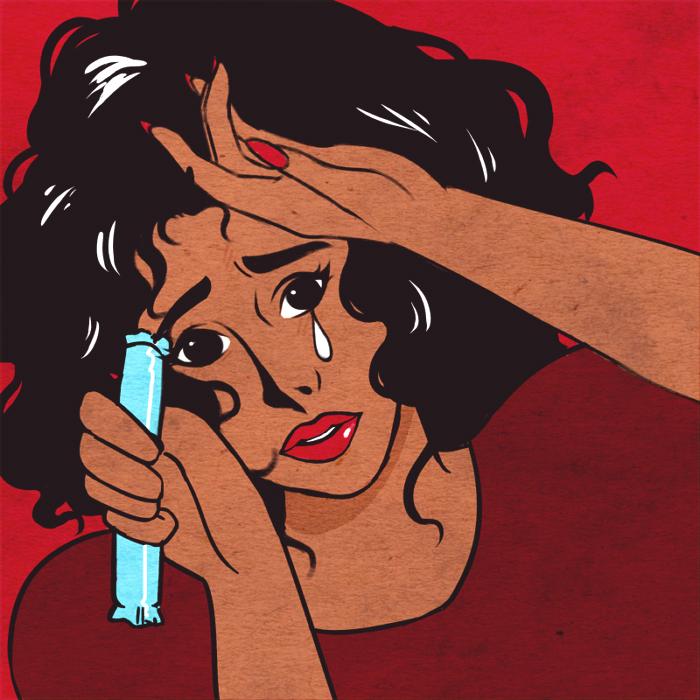It’s “that time of the month” again.
The euphemism is a playful, if not condescending, way to avoid actually having to discuss the reality of periods. But not all of us can use a little wordplay to so easily avoid the subject matter.
Menstruation is not only a reality, but a serious financial, emotional and physical burden that billions of women around the world can’t avoid. But enduring stigma about periods and their surrounding issues allow societies to ignore the fact that many women still lack access to even the most basic feminine hygiene products.
An open dialogue between the people who legislate about tampons and those who use them would enhance education about the fundamentals of menstruation. Honesty about periods would also spread awareness about — and potentially help alleviate — the severity of menstrual hygiene conditions for women living in poverty both in the United States and other countries.
While officials at many levels of government across the world don’t view it as a priority, feminine hygiene is a necessity. With basic expenses for food, water and clothing, the additional costs of menstrual hygiene products can be highly restrictive, especially for the more than 800 million women and girls who subsist on less than one dollar per day. This is especially striking when you consider the fact that the average American woman will spend nearly $2,000 on tampons in her lifetime.
For American women living below the line of poverty, access to menstrual sanitary products can be even more difficult as the food stamp program doesn’t cover feminine hygiene products. Most American women live in one of the 46 states that still maintain some form of “tampon tax” — Pennsylvania is among the handful that doesn’t consider tampons a “luxury item” and doesn’t place a sales tax on it.
The inaccessibility of menstrual products is a problem all across the world — even in the United States and western Europe. A disproportionate level of female students from low-income backgrounds in Leeds, United Kingdom, are relying on their teachers to provide them with tampons and sanitary pads or missing school when they can’t get access. And the loss of school days translates far too often to female dropouts from school and constrained career choices as a result.
In India, for example, menstruation is so highly stigmatized that it’s actually viewed as making women impure. Menstruating women are not allowed to enter certain areas and are sometimes not even allowed to touch other people during their period. The impact this has on these women’s interaction with the rest of society is enormous — it’s almost impossible for them to exist independently when social rules constrain their actions so strictly.
“The shame and internalized misogyny girls feel keep them from seeking help,“ explained Lauren O’Brien, CEO and co-founder of Pauline Juliet — a nonprofit dedicated to providing women in Uganda the education and empowerment necessary to effect change — in an interview.
In India, 88 percent of women are forced to employ unwashed and reusable cloth, ash, leaves and husks as alternatives to sanitary hygiene products that are simply too expensive to be truly accessible. But this method is dangerous and can even become fatal. According to a 2011 survey of gynecologists conducted by The Times of India, a lack of menstrual hygiene leads to increased rates of cervical cancer, toxic shock syndrome, reproductive tract infection and a number of other bacterial infections.
Similar problems plague other parts of the world, including Sub-Saharan Africa, where women often resort to using rags, toilet paper or old newspapers to combat the monthly blood flow.
Even when it’s a human being’s life at risk, social norms often dictate that these vital conversations that need to be had about menstruation are just too “awkward” to bring up. Instead, we pile social discomfort onto the physical discomfort menstruation already affords a woman.
Beyond the risks concerning a woman’s life that come with making menstruation into a taboo subject, refusing to talk about the biological reality puts her livelihood at stake as well.
A UNESCO report estimates that 10 percent of girls attending school in Sub-Saharan Africa miss up to 20 percent of the academic year due to menstruation. In India, 23 percent of female students drop out altogether after menarche.
“In Uganda, [girls] who menstruate miss an average of 25 percent of their school year,” O’Brien said. “There are many factors that contribute to [the issue] such as not having menstrual products, not having proper medical care, not having separate bathrooms for girls and social taboo.”
It should never be the case that a woman can’t fully participate in society due to a sanitary inconvenience. Menstruation is not an option, and neither are the products we need to deal with them in a sanitary way. So why do we treat them as if they are?
Girls should not be forced into an inferior social role because of society’s inability to discuss women’s issues. If we can’t do better for our girls and women, then we can’t do better — period.
Jaime primarily writes about social and environmental issues for The Pitt News.
Write to her at [email protected].



